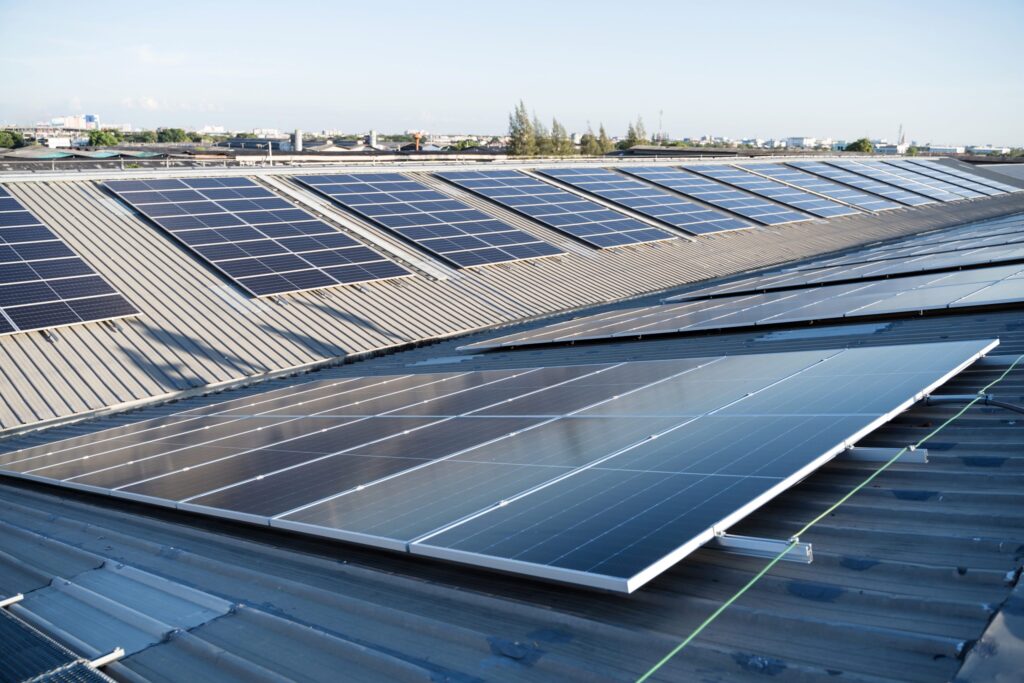Unlocking the Potential of Solar Leasing in North Carolina

North Carolina's transition to a fully decarbonized electricity sector can be greatly accelerated through the untapped potential of a more inclusive and accessible financial model: solar leasing.
Solar leasing offers a great way to expand access to photovoltaic (PV) systems by avoiding significant upfront costs, credit challenges/hurdles, and large capital investments made by homeowners. Instead, solar customers can arrange to make a monthly lease payment on the system, helping to lower utility bills, without a large financial commitment. Here in North Carolina, we’ve already delved into the success of solar leasing via a provision in House Bill 589 (HB589), which authorized a small, capped amount of leasing annually. Now, a bill in front of the North Carolina General Assembly proposes to raise that cap, which would unlock the benefits of solar leasing for many more homeowners and organizations across the state, solidifying North Carolina's position as a clean energy leader and inspiring other states to follow suit.
Financial Benefits and Environmental Stewardship
Solar leasing offers substantial financial benefits by eliminating high upfront costs, reducing credit and financing barriers, and lowering the overall investment required by homeowners and organizations. This makes solar energy more accessible and affordable to a broader range of individuals and entities. Moreover, solar leasing aligns with North Carolina's commitment to reducing carbon emissions in the electricity sector. Increasing solar capacity with leasing would contribute to the state's renewable energy portfolio, reduce reliance on fossil fuels and facilitate a transition to cleaner energy sources. Opening up the market for solar leasing would allow individuals, businesses, and communities more options to actively participate in clean energy projects, and lower utility bills while meeting their own environmental, social, and governance (ESG) goals.
Expanding Solar on the Grid
House Bill 589 (HB589), enacted in 2017, played a pivotal role in transforming North Carolina’s clean energy economy. Prior to HB589, solar leasing was not legally allowed in North Carolina. However, a provision in HB589 authorized solar leasing, albeit with a cap on total projects that could move forward under the financing model. The bill limited leasing to only 1% of the utility’s previous average 5-year peak demand.
Despite the limitation, this provision opened the door for a unique financing model that enables a whole host of potential new customers that previously were unable to install solar the ability to move forward with these projects. However, the 1% cap is a disincentive for solar leasing businesses to start up in North Carolina because if the cap it met no more leasing would be allowed.
Pending Legislation
Now, in 2023, we’ve seen a renewed push to increase the number of projects that could proceed in North Carolina under a leasing model. This is an incredibly important step that would open the door to private businesses being able to scale products and solutions around leasing.
In fact, House Bill 535 (HB535), a bill introduced in the North Carolina House, back in March proposed to increase the leasing cap in the state from 1% to 10% of total installed projects.
Despite the fact that this bill still awaits a hearing in the Senate, we have seen the same language added to Senate Bill 678. S678 received approval from the House Energy Committee and has strong potential to continue moving forward. Should this bill pass the House, we’d see a raised solar leasing cap, opening the market to a whole host of new customers and installers.
North Carolina has great potential for solar industry expansion and ranks among the top states in this regard. By increasing the solar leasing cap, we can solidify the state's position as a clean energy leader and unlock the economic and environmental benefits associated with solar power. The 1% cap, currently in place due to HB589, essentially acts as a ban on solar leasing, making it challenging for low and moderate-income ratepayers, non-profit organizations, and small businesses to take control of their electricity bills.
Furthermore, we expect that lifting the cap will attract additional solar companies that have refrained from operating in our state due to the restrictive limitation. This legislation is necessary to foster renewable energy growth, support property owners in meeting their energy needs, and offset the rising cost of electricity. It is important to note, however, that the bill does not affect cooperatives or cooperative utilities, as they are exempt from the solar leasing program.
Overall, the implementation of this bill would be a straightforward process, requiring the NC Utilities Commission to simply accept and allow more solar leasing projects across the state without the need for new regulations. By supporting this legislation, we can help unlock the full potential of solar energy in North Carolina and foster a cleaner and more sustainable future for our state.
Moving Forward
North Carolina can look to the success of states like California, where solar leasing has flourished with rooftop solar installations in 44.92% of homes and a total of 6.3 million homes with solar. By increasing the solar leasing cap, North Carolina can unlock the untapped potential of solar energy, drive economic growth, and establish itself as a national leader in the clean energy transition.
As North Carolina raises its solar leasing cap to 10%, more homeowners, businesses, and communities will have access to affordable and sustainable energy options. The financial benefits and the resulting environmental improvements will create a ripple effect that extends beyond individual households and businesses, positively impacting the entire state.
Let us embrace the potential of solar leasing to elevate North Carolina’s clean energy endeavors. This will unlock the benefits of solar leasing, helping to create more affordable energy options for North Carolinians, especially as our state’s largest utilities look to significantly increase rates over the coming years.

